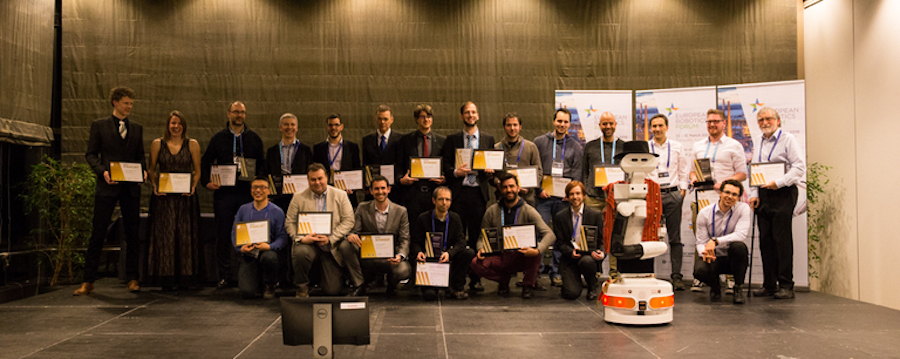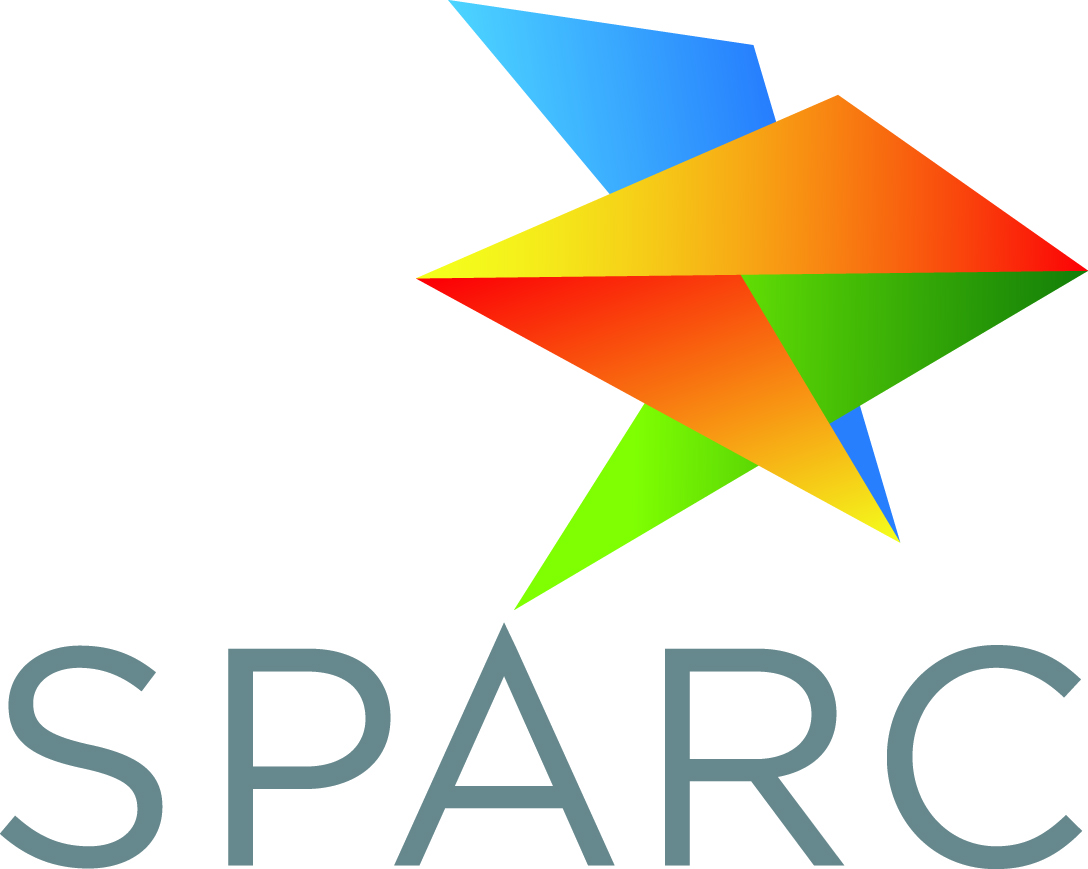
Robohub.org
European Robotics League winners revealed at #ERF2018

Award winners in robot competitions held by the European Robotics League (ERL) were named on 14 March 2018, during this year’s European Robotics Forum (ERF), held in Tampere, Finland on 13–15 March.
Awards for the ERL’s 2017-18 season were presented at a Gala Dinner to winning teams that took part in all ERL competitions: Service Robots (ERL-SR), Industry Robots (ERL-IR) and Emergency Robots (ERL-ER).
ERL-SR is for robots that could provide assistance in homes, particularly for people with reduced mobility. ERL-ER is for robots in simulated emergency situations and ERL-IR tackles automation in industry.
Dozens of teams from around Europe took part in the 2017–18 ERL competitions, which stimulate innovation by and collaboration among robotics researchers by setting tasks in simulated real-life conditions, for completion against the clock.
The challenges include understanding natural speech, finding and retrieving objects, greeting visitors, supplying medical aid kits, and stopping simulated radioactive leaks. The teams’ technical approaches could find their way into future commercial robots and could be suitable for a wide range of non-robotics uses in all areas of life.
ERL teams are ranked on their end-of-year scores for various task and functionality challenges, using the best two participations in tournaments. The following teams were awarded on stage during the ERF2018 Awards Gala Dinner.
ERL Service Robots:
- homer@UniKoblenz, Germany, won the first prize for: Task Benchmark 1 “Getting to Know My Home”; Task Benchmark 2 “Welcoming Visitors”; Task Benchmark 3 “Catering for Granny Annie’s Comfort”; Task Benchmark 5 “General Purpose Service Robot (GPSR)”;
- HEARTS, Bristol, UK, won the first prize for: Task Benchmark 2 “Welcoming Visitors”; Functionality Benchmark 3 “Speech Recognition”;
- IRI@ERL, Barcelona, Spain, won the first prize for: Task Benchmark 2 “Welcoming Visitors”; Task Benchmark 3 “Catering for Granny Annie’s Comfort”;
- RoboticsLab UC3M, Madrid, Spain, won the first prize for Task Benchmark 4 “Visit My Home”;
- SocRob@Home, Lisbon, Portugal, won the first prize for: Task Benchmark 1 “Getting to Know My Home”.

European Robotics League Service Awardees 2017-2018 and Coordinators. Credits: Visual Outcasts
ERL Industry Robots:
- b-it-bots Bonn-Rhein-Sieg University, Bonn, Germany, won the first prize for: Functionality Benchmark 4 “Navigation Functionality”.

European Robotics League Industry Awardees 2017-2018 and Coordinators. Credits: Visual Outcasts
ERL Emergency Robots:
- IMM – Janusz Bedzowski won the first prize for: Task Benchmark 2 (Land + Air) “Survey the building and search for missing workers”; Functionality Benchmark 1 “2D Mapping Functionality” (Land + Air);
The Grand Challenge Task Benchmark 1 (land + sea + air) was won by:
- Universitat de Girona – Eric Pairet who won also the first prize for: Task Benchmark 4 (Land + Sea) “Stem the leak”; Functionality Benchmark 3 (Sea) “Object Detection”; Task Benchmark 3 (Sea + Air) “Pipe inspection & search for missing workers”;
- Telerob – Andreas Ciossek who won also the first prize for: Task Benchmark 4 (Land + Sea) “Stem the leak”; Functionality Benchmark 2 (Land + Air) “Object Recognition”;
- ISEP/INESC – Alfredo Martins who won also the first prize for: Task Benchmark 3 (Sea + Air) “Pipe inspection and search for missing workers”; Functionality Benchmark 2 “Object Recognition” (Land + Air).

European Robotics League Emergency Awardees 2017-2018 and Coordinators. Credits: Visual Outcasts
The ERL-ER prizes for task challenges were awarded during the Awards Ceremony for the emergency robots competition held at Piombino, Italy on 15-23 September 2017.
European Robotics League
The European Robotics League (ERL) is the successor to the RoCKIn, euRathlon and EuRoC robotics competitions, funded by the EU and designed to foster scientific progress and innovation in cognitive systems and robotics. The ERL is funded by the European Union’s Horizon 2020 research and innovation programme and runs competitions for service (ERL-SR), industrial (ERL-IR) and emergency robots (ERL-ER). See:
The latest ERL-SR scores can be found here.
The latest ERL-IR scores can be found here
The latest ERL-ER scores can be found here.





